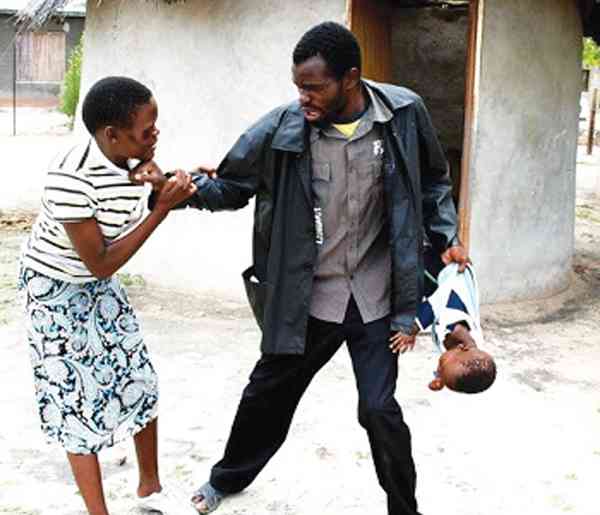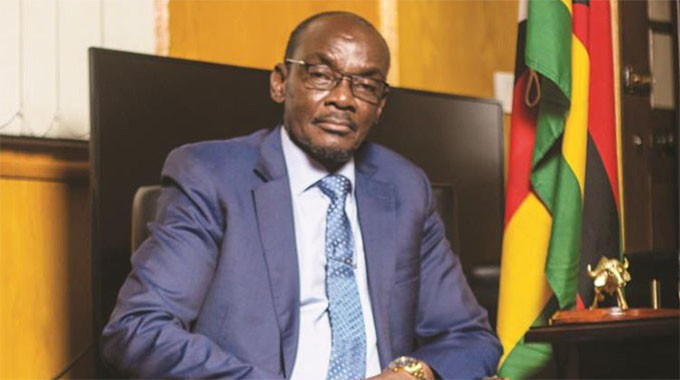
TARISAI (33) is grateful that she is healing from a violent attack recently in Mhondoro-Ngezi, Mashonaland West province.
She was accused of dating a married man and was thoroughly beaten, stripped naked and left bruised and bleeding through the nose.
She still has scars all over her body.
“I didn’t expect that the perpetrators will be brought to book, but someone captured the attack on phone and the video went viral, and within a few days, they were arrested,” she narrated her ordeal, one of the stories whereby information and communication technologies (ICTs) are being useful in fighting injustice.
In Zimbabwe, ICTs are proving to be useful in curbing gender-based violence (GBV), among other social vices in communities.
Despite ICT coming to her rescue in seeking justice following her bashing, Mubata is part of the country’s statistics of cyber security challenge stories faced by women and girls.
Women’s Coalition of Zimbabwe chairperson Muchanyara Mukamuri noted that the emergence of ICTs and technological era has brought blessings and curses alike, “for example, when people post certain videos online through bullying or sex and sexuality, even when someone decides to attack another person”.
She said some do so out of ignorance of the law and ICT rules and regulations.
- Tarakinyu, Mhandu triumph at Victoria Falls marathon
- Ngozi Mine’s young mothers suffering in silence
- Plot to oust ED thickens
- Bread in short supply as bakeries demand US$
Keep Reading
“We have noted with concerns that lack of education and knowledge affect mostly women and girls,” Mukamuri said.
“They must understand that it’s harmful sensitive information online.”
She further explained that there is a lot of cyber bullying going on and it has affected mostly women and girls, who end up feeling alone and emotionally abused.
“Abuse of social media is a result of ignorance and mistrust,” Mukamuri said.
Her organisation works as a referral pathway that has always assisted women and girls who feel abused on social media.
“We amplify this through awareness campaigns especially on what they must post, click or like on social media platforms,” Mukanuri said.
“We advise which groups they may join and avoid catfish that may be deceptive and lure girls into relationships that may be disastrous affecting their wellbeing.”
She added: “We had a sad case of a young girl who came all the way from Beitbridge after dating a man online, who turned out to be a crook.
“She tried searching for him, but was blocked online. She had nowhere to go and had to seek financial help so she could return home. It’s a case of online mistrust between lovers.
“Our social fabric is greatly affecting women and girls who victims of ICT misuse and it's worrisome.”
Mukamuri said some cases of online dating have, however, been successful.
“Unfortunately, some women and girls are lured into relationships that won’t last long or even leave them abused,” she said.
“Some end up losing money due to empty promises.
“We urge the media to help in educating communities so they are well informed on how to use ICT effectively.”
Shamwari YeMwanasika programmes co-ordinator Fanuel Marowa said the organisation recognises the multifaceted impact of ICT in curbing gender-based violations, particularly when videos go viral.
“On one hand, ICTs enable rapid response and intervention, allowing us to reach out to victims and provide support in a timely manner,” he said.
“Online platforms and social media provide a safe and confidential space for survivors to seek help, especially for those in remote or marginalised areas.”
Marowa added that ICTs help to amplify the voices of survivors and raise awareness about gender-based violations, promoting a culture of accountability and support.
“They facilitate community engagement and mobilisation, enabling us to educate and empower individuals to take action against gender-based violations,” he said.
“Additionally, ICTs enable the collection and analysis of data on gender-based violations, informing policy and programming decisions.
“Furthermore, online platforms can connect survivors with support networks, providing a sense of community and solidarity.”
Marowa nonetheless acknowledged the challenges associated with ICTs such as digital harassment, viral content that can exacerbate trauma and harm, and the digital divide that can exclude marginalised groups.
“As Shamwari YeMwanasikana, we believe that ICTs have the potential to be a powerful tool in curbing gender-based violations. To harness this potential, we must address the challenges and ensure safe and accessible online spaces for survivors. By doing so, we can create a supportive ecosystem that empowers survivors and promotes a culture of respect and dignity,” he said.
“We believe that ICTs are playing a vital role in curbing gender-based abuses. Online platforms and hotlines enable survivors to report incidents, leading to swift action and support. ICT also facilitates awareness campaigns, educating communities about gender-based violence, its impact, and the importance of consent and respect.
“By amplifying survivors’ voices and providing access to resources like legal aid, healthcare services and shelters, ICT empowers survivors to seek justice and healing. We harness ICT’s potential to prevent gender-based violence, support survivors, and promote a culture of respect and dignity.”
The girl child advocate group operates in Mashonaland East, Central and Harare provinces targeting mostly girls.
In Zimbabwe, GBV includes various forms of abuse where women and girls are victims.
It is believed that one in every four women have gone through any forms of GBV that include physical violence, sexual violence where forced marriages are still rampant in some apostolic sect churches.
Of late, some traditional harmful effects have contributed to GBV, while economic challenges fuel the burden on mostly women and girls who are married before attaining 18 years.
Approximately one in three women in Zimbabwe have experienced physical violence, and one in four have experienced sexual violence since the age of 15.










